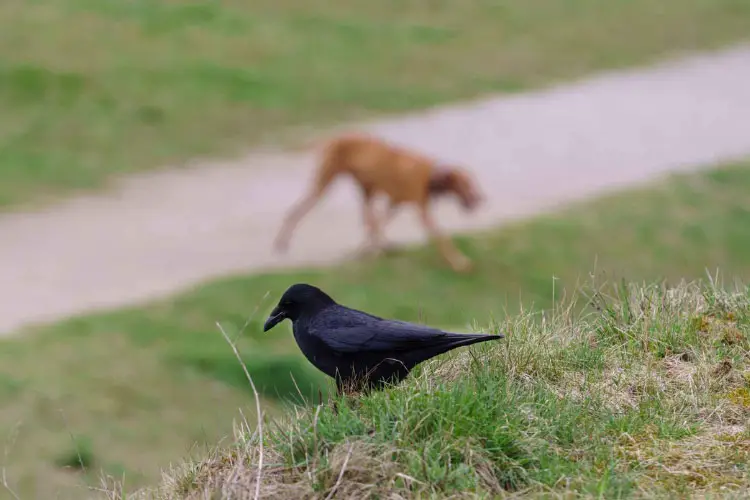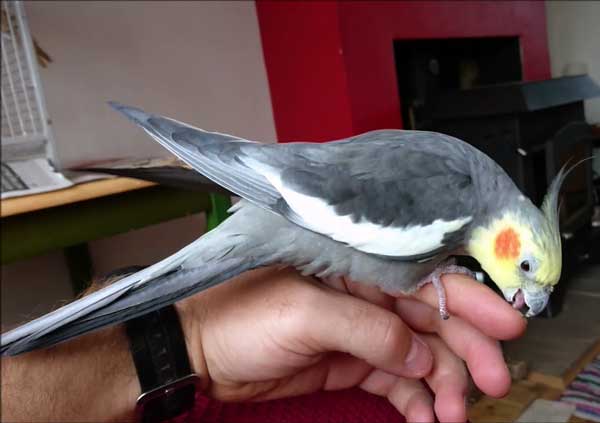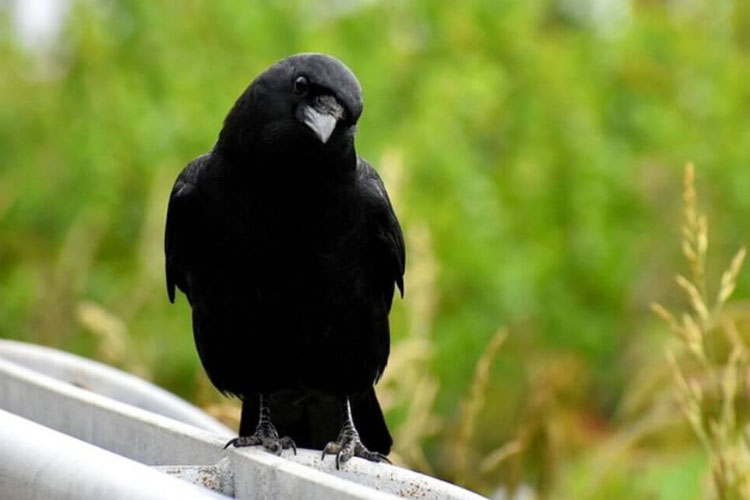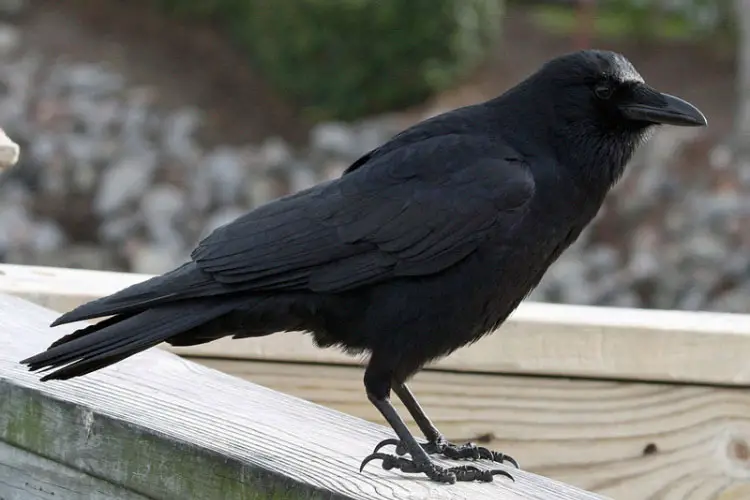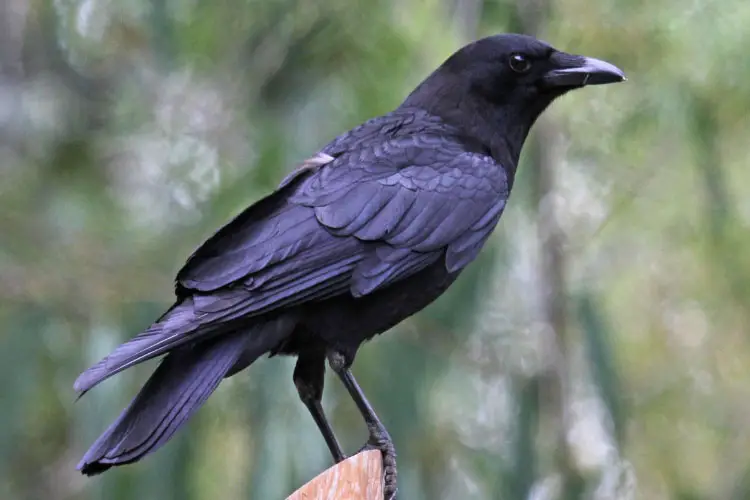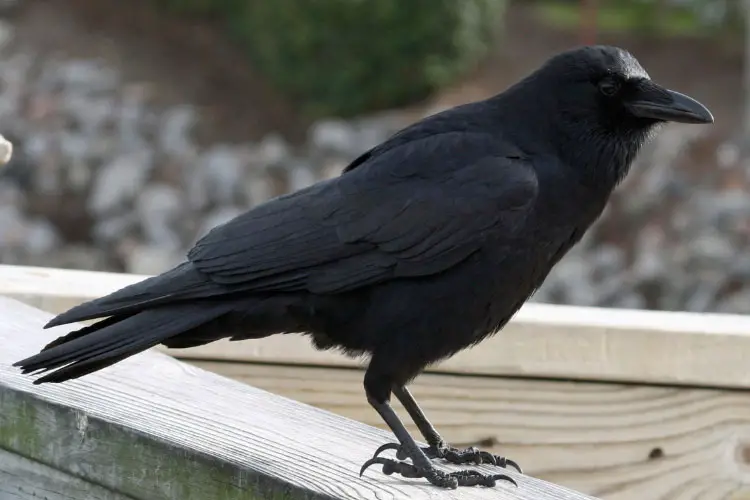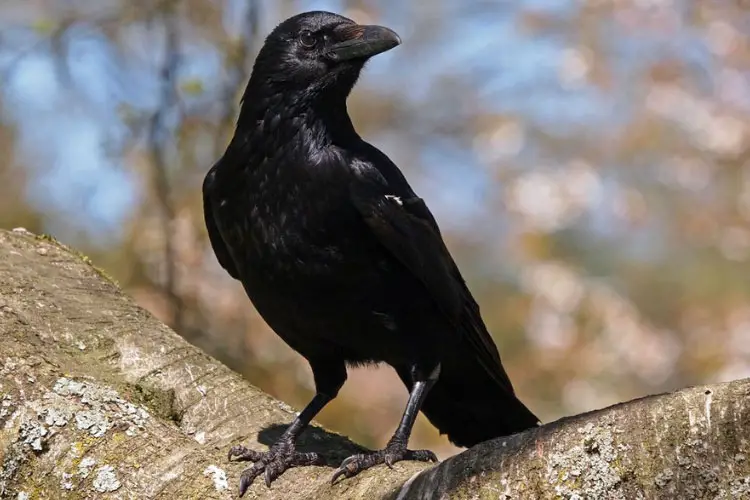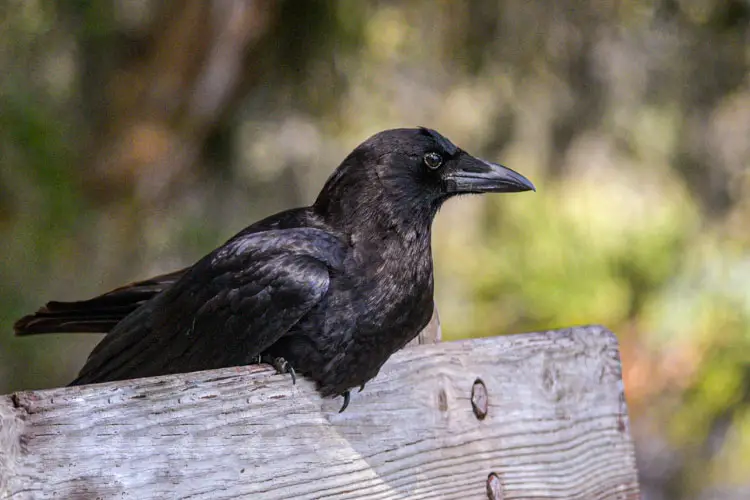Until very recently, humanity has considered birds to be less intelligent than mammals. We even coined the term- ‘bird brain,’ which refers to someone who is not very bright. However, crows have proven us wrong as they are more intelligent than we ever knew.
Are crows smarter than dogs? Yes, crows are more intelligent than dogs. Crows make and use tools, solve puzzles, and can also recognize human beings from one another. On the other hand, dogs can solve complex problems like puzzles but cannot make or use tools.
Research shows crows have the same cognitive ability as an ape. They are now even referred to as “the feathered primates.” This article will discuss what makes crows intelligent, why they are smarter than dogs, and how they are more intelligent.
Are Crows Smarter Than Dogs?
Yes, crows are more intelligent than dogs. Dogs can do tricks and even solve complex problems, but crows beat them when making and using tools. Crows are capable of reasoning, making group decisions, making tools, and solving complex problems.
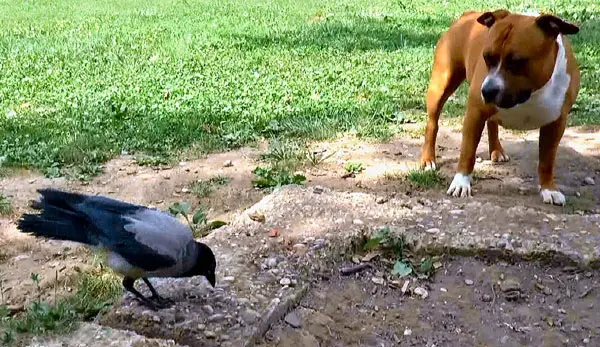
According to research, crows have performed better in intelligence tests than dogs. In a study done at the University of Cambridge, researchers discover that crows operate on the same intelligence level as a seven-year-old.
Aside from making tools, crows also can remember faces which dogs do not seem to do.
What Makes A Crow Intelligent?
Crows are members of the Corvidae family, which includes magpies, jays, and ravens. The Corvidae family is known to be more intelligent than your typical type of bird. They have a brain that is the same as that of a primate.
Andreas Nieder’s research shows that crows employ a thought process when solving particular problems. In human brains, thinking occurs in the cerebral cortex, but surprisingly, crows do not have a cerebral cortex.
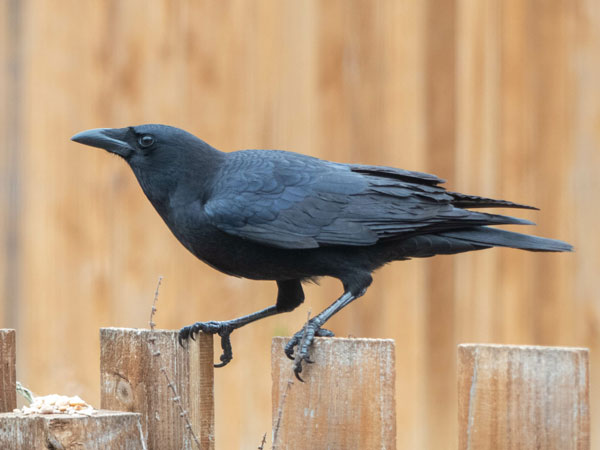
Instead, crows have a pallium consisting of many packed neurons, which is where thinking occurs. The neurons are more diminutive and tightly packed, which makes the pallium lighter, and thus, the crow can fly.
A crow has approximately 1.5 billion neurons, the same as the number of neurons found in an ape. The tightly packed in pallium makes communication between the neurons more efficient.
How Are Crows More Intelligent Than Dogs?
Here is how crows are more intelligent than dogs.

1. Talk about humans to other crows
Crows communicate and talk about humans. In addition to that, they can recognize a person’s face. In a study by Marzluff, a University of Washington Aviation Conservation Lab professor, the researchers captured crows, marked them, and then released them.
During the marking process, the researchers wore masks. After the crows were released, the researchers returned to the site three years later in the masks they wore when trapping the birds.
The marked crows instantly attacked those wearing masks to indicate they remembered those who had captured them.
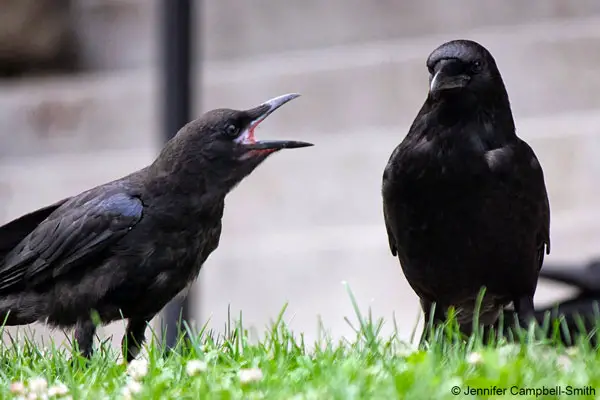
Another interesting thing was even unmarked crows attacked the masked researchers. That indicates the crows could pass information and warn other crows about the masked researchers.
Fifteen months later, the masked researchers returned to the site, and this time they were attacked by an even larger murder of crows. The crows seemed to pass the information from generation to generation.
There is not much research on crows’ communication, but a crow can certainly describe you to a fellow crow.
2. They can make their tools
Making tools is by far their most mind-blowing attribute. Crows make tools out of pliable material out in the world. They use the tools to retrieve food from places they cannot reach.
New Caledonian crows use pliable plant stems to make hooked tools. During experiments, scientists hid the specific stems under leaves and put other branches where crows could see them. These crows found the stems they needed for their hooks.
The scientists discovered that the crows sought specific branches to make the correct tool. In the same way, you would not use a hammer to fix a pipe.
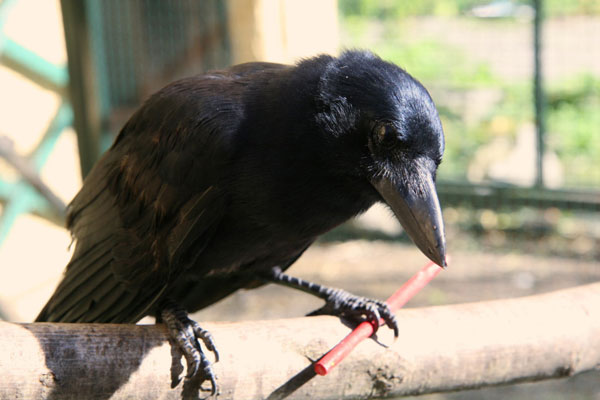
Betty, a Caledonian crow, was the first to exhibit these tool-making skills. The crow took a straight wire in its cage and bent it to form a hooked end. Betty then used the bent wire to retrieve a food reward inside a vertical tube.
The Aesop study is a famous experiment confirming that crows can use tools to get what they want. Aesop’s analysis comes from ancient folklore, which involved a thirsty crow dropping stones into a water-filled pitcher until the water rises enough for the bird to drink.
When researchers conducted this study, they saw that crows could identify heavy material from light material. The heavy material sunk and thus made the water level rise.
3. They are self-aware
Unlike dogs, crows seem to be self-aware. For example, if you put a mirror in front of a dog, it will bark and growl at its reflection, thinking that that is another dog.
For example, in the mirror test, crows recognize themselves in mirrors and can look at parts they do not usually see when looking at their reflections. Therefore, crows are self-aware and conscious.
4. They have an incredible memory
Crows can recognize friends from foes. Researchers have done a study that involves some people poking crows or chasing them away, and another group feeds the crows and is friendly.
The researchers saw that the crows could recognize the faces of the hostile people for weeks. If one of the hostile people appeared, the crows would swoop down and angrily caw at the person.
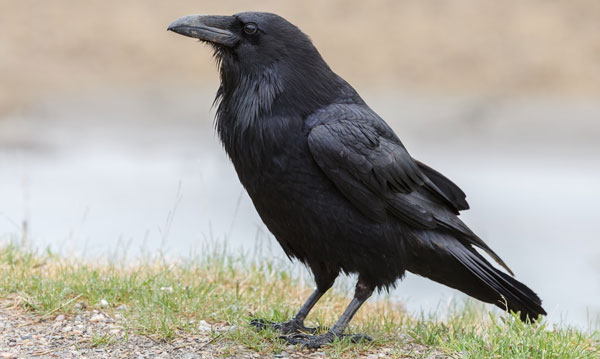
If a friendly person appeared, the crows would remain calm and swoop down to meet the nice person. Also, crows leave gifts for friendly people who feed them.
Apart from remembering their friends and foes, crows have the mental ability to memorize schedules. For example, garbage days and the time when a restaurant closes and opens. This strategy helps them be careful when foraging for food.
Also read: Are Crows Scavengers Or Omnivores Or Carnivores?
5. They do better on tests
Unlike dogs, crows are better at identifying numbers, colors, and even shapes. Crows are known for placing hard-to-crack nuts on a busy road so that the cars can crack them open.
They also wait for the traffic lights to turn red before swooping down and retrieving the open nuts. Other crows use bread as bait when hunting for fish.
6. They plan for the future
Like a squirrel stores nuts for the future, a crow will store food too. It stores food in secret places unknown to any other crow or animal. If the crow suspects another animal is observing it, it hides the food under its feathers. The crow continues acting as if it has hidden the food in that area.
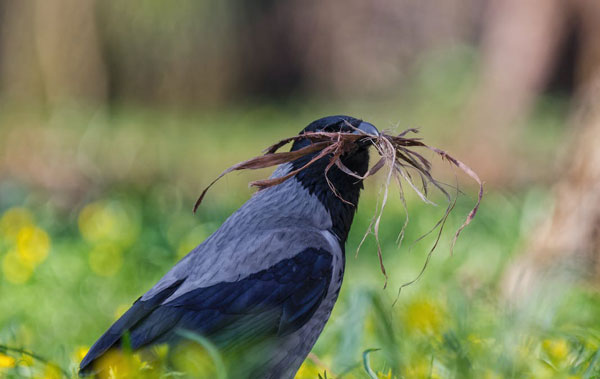
The crow flies away and finds a safer hiding spot. Crows know this trick; if they see another crow doing it, they do not fall for it.
7. They understand analogies
Crows are capable of matching shapes and colors. Research shows that crows can match a shape to a specific color. Laboratory experiments show that crows have grasped the concept of same and different.
8. They grieve their dead
Crows are known to surround their dead and mourn them. They surround the dead crow to understand why it died so that they can be careful in the future.
9. They engage in games in their younger years
Juvenile crows will steal food from dogs and cats to taunt them, swinging from branches or sliding on rooftops. These games enable them to perfect the art of hunting and foraging.
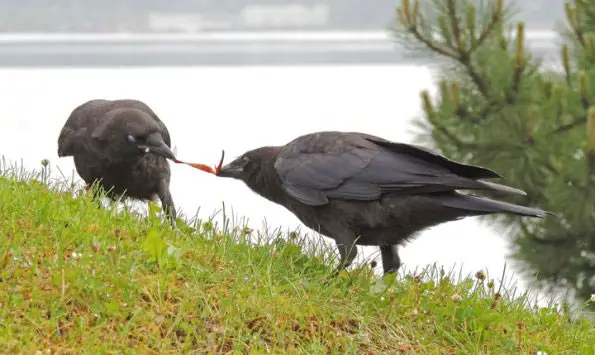
10. They use gestures to communicate.
Primates and humans only use gestures, but now researchers have discovered that crows use gestures to communicate. For example, crows pick up stones, moss, or twigs and raise them in the air, which another crow interpreted as a way of communication.
| Crows | Vs. | Dogs |
| Crows can make tools, solve complex problems, mimic human speech and recognize human faces. | Dogs can only solve complex problems like puzzles but cannot solve problems such as the Aesop experiment or make and use tools. | |
| Crows recognize shapes, numbers, and colors. | Dogs do not recognize color or numbers. | |
| Crows can communicate through gestures. | Dogs cannot use gestures. | |
| Crows mourn their dead. | Dogs do not mourn their dead. | |
| Crows are self-aware and can recognize themselves in mirrors. | Dogs do not seem to differentiate their reflection; they see it as another dog. | |
| Crows store their food for the future use. | Dogs do not store food. |
Related: Can Crows Be Tamed?
A Video Of A Crow Being a Problem Solver
Here is a video showing a crow solving a complex problem.
Related Questions
Here are other frequently asked questions
Yes, crows have the same intelligence level as a seven-year-old. Crows can exercise self-control and reason out complex life situations. A good example is the Aesop study. Crows can make the water rise by dropping heavy material inside the pitcher.
Yes, crows can remember human faces. Crows have exceptional memory abilities and can tell a stranger from a familiar face. They can also say to a friend from a foe.
Conclusion
Are crows smarter than dogs? Yes, we have established in this article that crows are more intelligent than dogs. Crows can make tools, recognize people’s faces and solve complex problems, whereas dogs can only do tricks and solve puzzles.
Not only do crows make tools, but they also choose suitable materials to make the tools with. Despite having only a beak and feet, crows can make and use tools, making work easier.
